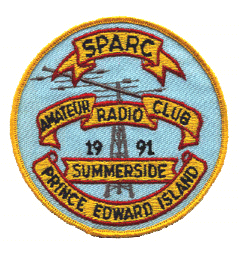Highlights of CITEL WRC Preparatory Meeting: August 12 to 16 in Ottawa
CITEL, the telecommunications committee of the Organization of American States, concluded a week of meetings on Friday, August 16 at the Shaw Centre in Ottawa.
These meetings have as their principal purpose to try to establish common positions on agenda items which will be acted upon during the World Radiocommunication Conference (WRC-19) which begins on Monday, October 28 in Sharm El-Sheikh, Egypt.
The following Radio Amateurs (from left to right in the above photo) were present at the CITEL meetings and were tasked with looking out for issues of concern to the Amateur Radio Service:
- Bryan Rawlings, VE3QN – on the Canadian Delegation and Radio Amateurs of Canada’s Special Advisor to World Radiocommunication Conferences
- George Gorsline, VE3YV – member of the Executive Committee for the International Amateur Radio Union (IARU-R2)
- Flavio Archangelo, PY2ZX – on the Brazilian Delegation and International Amateur Radio Union Region 2 CITEL Coordinator
- Serge Bertuzzo, VA3SB, Radio Amateurs of Canada’s International Affairs Officer
- Jon Siverling, WB3ERA – on the American Delegation and the Technical Relations Officer for the American Radio Relay League (ARRL)
The following are the principal highlights of the week’s activities for Radio Amateurs:
Six Metres: There are now 14 signatories to an Inter-American Position (IAP) which in effect voices no objection to an allocation in 50 – 54 MHz to the Amateur Service in the International Telecommunication Union (ITU) Region 1 (Europe, the Mideast and Africa).
Six Metres: Amateurs were successful in adding wording to protect the Amateur primary allocation in 50 – 54 MHz from a US proposal to study implementing space-based Earth Exploration Service radars to operate in or close to 45 MHz.
47 GHz: Amateurs were successful in having Mexico remove the frequency segment 47 – 47.2 GHz from their proposal to study several additional frequency ranges for the Fixed Satellite Service.
47 GHz: An IAP supported by 11 member states supports No Change (NoC) to the existing (Amateur Primary) allocation in 47 – 47.2 GHz. Specifically, not to be considered for sharing with 5G International Mobile Telephony (IMT).
5 GHz WAS/RLAN: An IAP supported by 12 member states supports No Change (NoC) to the existing allocations in 5725 to 5850 MHz and 18 member states support No Change in the range 5850 to 5925 MHz (as opposed to using these frequency ranges for higher-power and outdoor wireless access points). The Amateur secondary allocation in Canada is 5650 to 5925 MHz.
WPT(EV): Wording in a Canadian contribution with additions from the American delegation has been added relative to a WRC-19 agenda item which seeks to identify frequencies for medium and high-power wireless charging of electric vehicles. The wording emphasizes the requirement to properly set standards to avoid harmful interference to radio services from WPT(EV) systems.
Note: The French proposal to consider 144 – 146 MHz for sharing with the aeronautical mobile service was not on the CITEL agenda. It will be considered next in a CEPT meeting in Ankara in late August. For more information please visit: https://www.rac.ca/2-metre-sharing-proposal-is-on-cept-conference-preparatory-group-agenda/
This was the last CITEL meeting before the upcoming WRC-19 Conference; therefore, the above is a fair representation of the status of the various Amateur issues going into that meeting.
Stay tuned to the WRC-19 webpage on the RAC website for more updates.
Bryan Rawlings, VE3QN
Special Advisor to World Radiocommunication Conferences
Radio Amateurs of Canada
